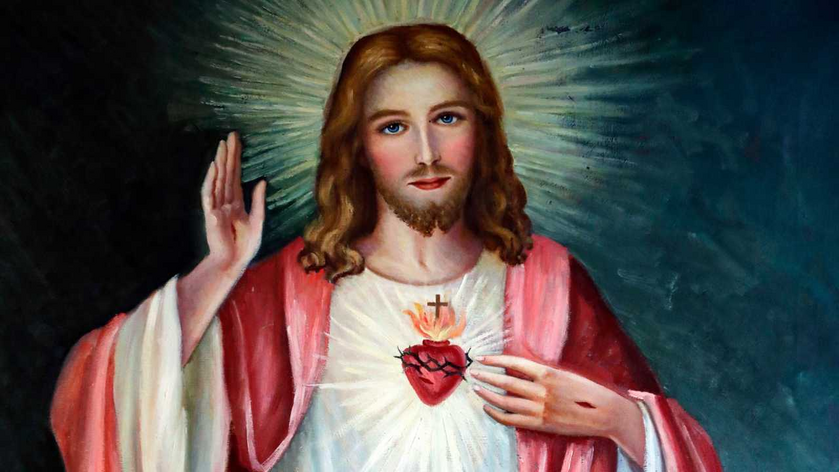It’s June. For many people, that means up with the rainbow flags on houses, windows, and social media profiles. Businesses will bend over backward to show that they’re in with the LGBTQ crowd (even though some of them do business with nations that sadly torture such people).
For Catholics, June means commemorating our Lord’s Sacred Heart, the font of true love of a savior who said, “Take my yoke upon you and learn from me; for I am gentle and lowly in heart and you will find rest for your souls” (Matthew 11:29).
We’ve been celebrating His Heart far longer than our nation has observed Pride Month, and it’s time we reclaimed June for Christ. Post images of the Sacred Heart to your social media feeds to counter the rainbows. Above all, join me in saying the following prayer, and please share it with family and friends!
A Prayer to the Sacred Heart
Oh Lord Jesus Christ, to Your most Sacred Heart I confide this intention {name petition}.
Only look upon me, then do what Your love inspires. Let Your Sacred Heart decide.
I count on You. I trust in You. I throw myself on Your mercy. Lord Jesus, You will not fail me.
Sacred Heart of Jesus, I trust in You.
Sacred Heart of Jesus, I believe in Your love for me.
Sacred Heart of Jesus, Your kingdom come.
Sacred Heart of Jesus, I have asked You for many favors, but I earnestly implore this one.
Take it, place it in Your open Heart.
When the Eternal Father looks upon it, He will see it covered with Your Precious Blood.
It will be no longer my prayer, but Yours, Jesus. Sacred Heart of Jesus,
I place all my trust in You. Let me not be disappointed. Amen.




















